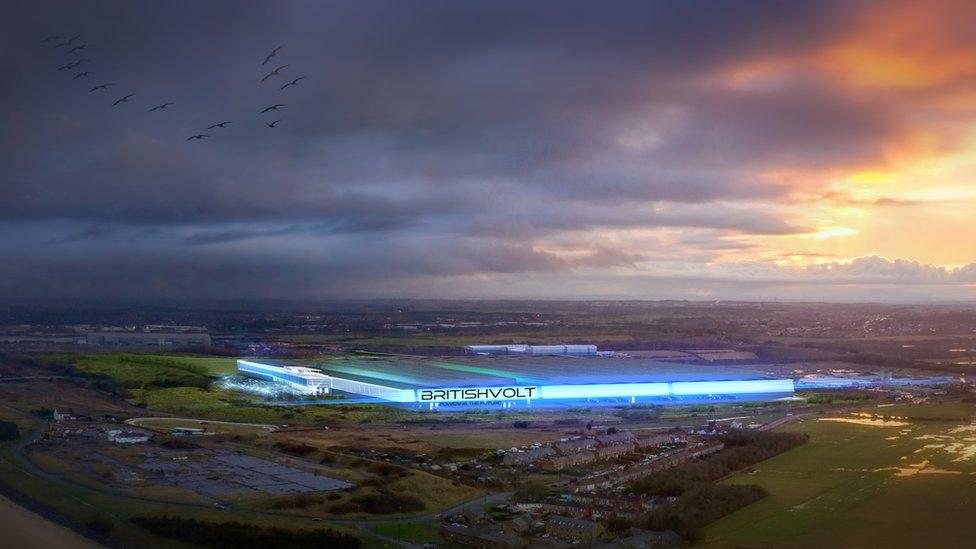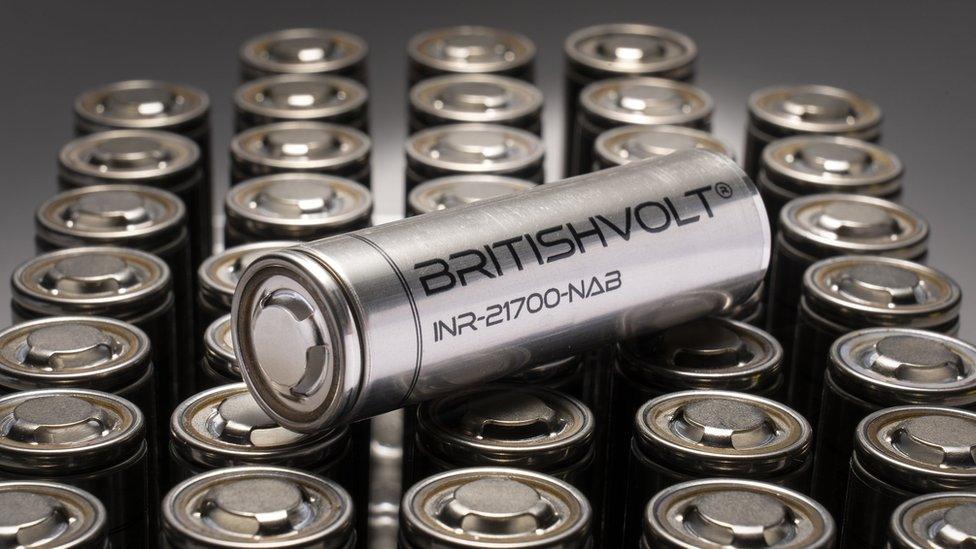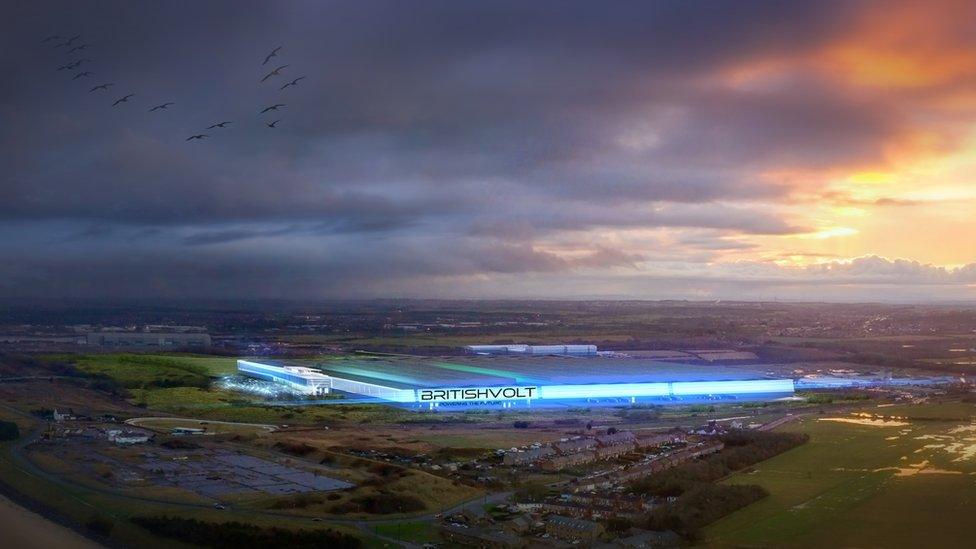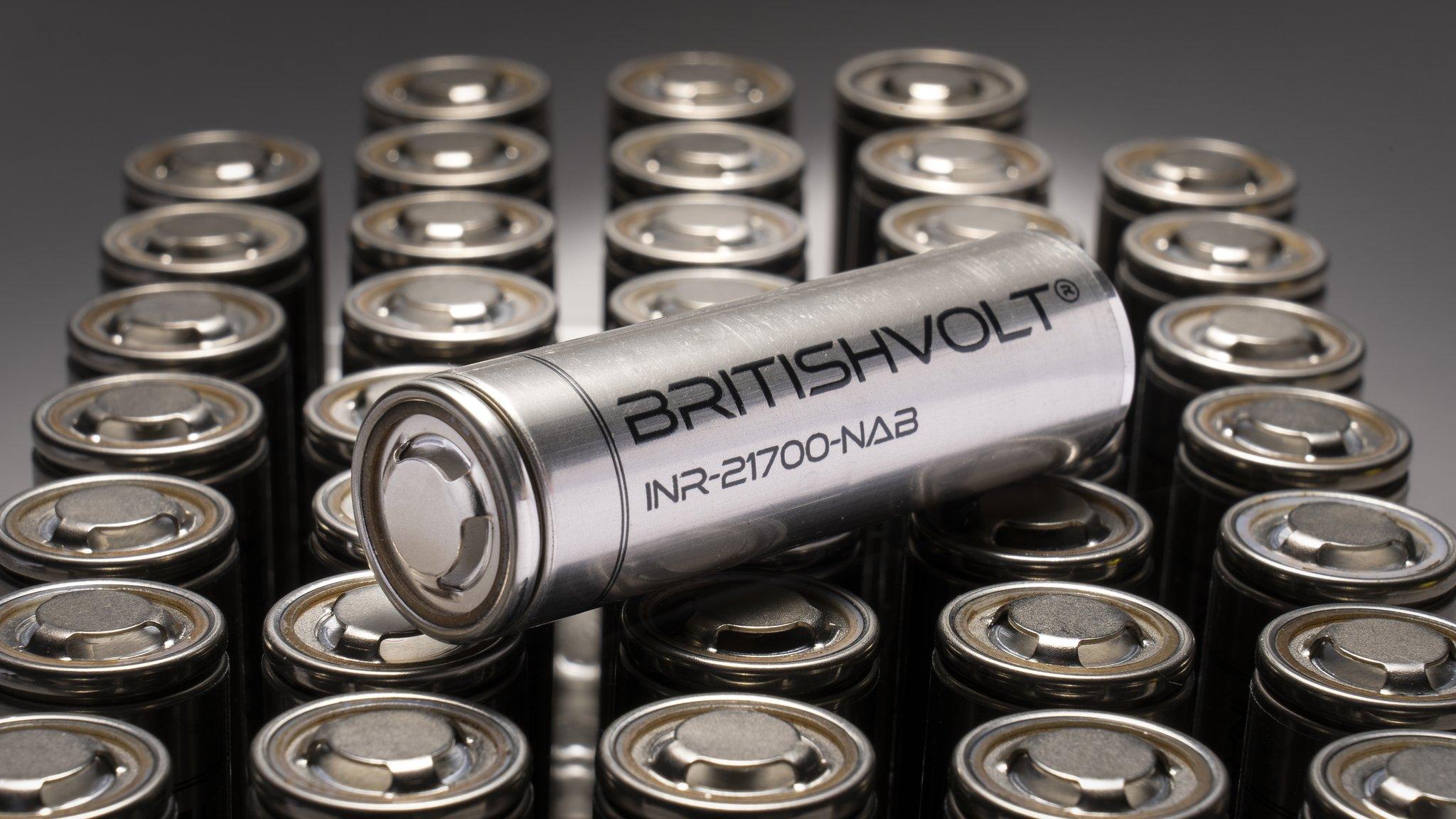Blyth 'gigafactory': Ex-offenders offered chance at car battery plant
- Published

Construction of the "gigaplant" on the site of the former Blyth Power Station is scheduled to start in 2022
Ex-offenders and people "on the wrong tracks" are to be offered training for jobs at the UK's first "gigafactory".
Potential recruits at Britishvolt's electric car battery plant in Blyth, Northumberland, will be offered life skills classes, the company said.
Chairman Peter Rolton said the decision to bring 3,000 jobs to the town was based on the area's "wonderful people" and an affordable site.
Construction of the lithium-ion battery factory is due to start next summer.
'Basic adult literacy'
As production will not start until 2023, the company has time to train its workforce and has taken over two disused shops in Blyth to offer classes to potential recruits, Mr Rolton told BBC Radio 5 Live.
"We've got time to engage with the community, start to find people and start the training.
"We're going to be offering basic adult literacy to people who might have missed out on learning to read and write and do basic maths, starting the process of getting the community levelled up and taking people all the way through to being able to work for us.
"We're going to work with ex-offenders and youths who might be going on the wrong tracks."
"I'm slightly biased, I was brought up in Northumberland.
"To bring this factory to my original home fills me with a lot of pride and I know how wonderful people from that part of the world are."

Peter Rolton - a former government advisor on renewable and low-carbon technology - studied at Newcastle Polytechnic in the 1980s
'Bees to the honeypot'
As well as the vision of 3,000 jobs at the former Blyth Power Station in Cambois, Britishvolt expects a further 5,000 jobs will be created in the wider supply chain.
"In the way Nissan generated an eco-climate of suppliers in Sunderland, we expect to do the same thing" Mr Rolton added.
"Get the gigaplant up and running we are expecting it to be the bees to the honeypot - suppliers come to you."
The company hopes to be producing enough batteries for 300,000 electric cars each year by 2027.
Mr Rolton said the Blyth site was perfect because the former power station was already connected to the National Grid, the land was affordable and it had access to a deep water port and rail links.
The 235-acre (95 hectare) site will use renewable energy, possibly hydro-electric power generated in Norway, he added.
The £2.6bn factory will be the largest single industrial investment in the North East since the arrival of Nissan, according to Britishvolt.
It is currently looking at how best to get its supplies such as cobalt and lithium to the plant.

The plant will produce lithium-ion battery packs for the UK automotive industry
Related topics
- Published16 December 2020

- Published11 December 2020
